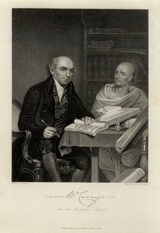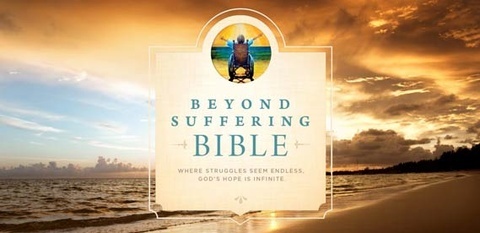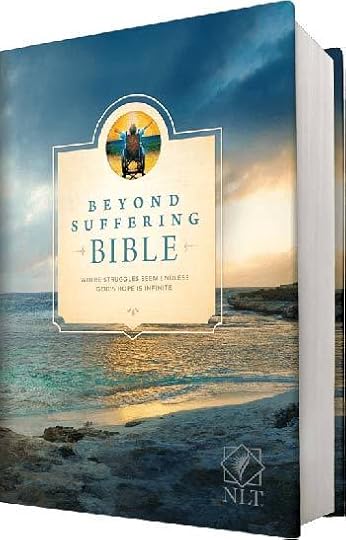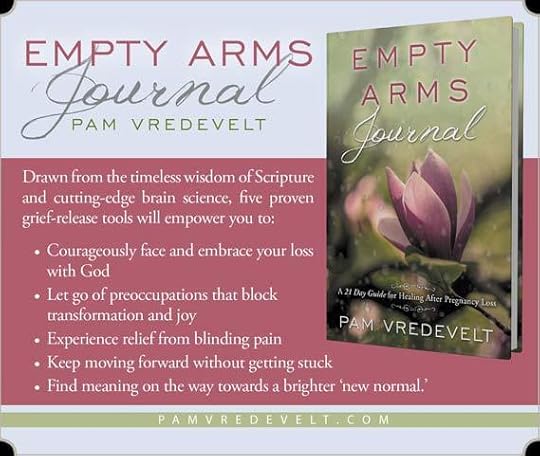Randy Alcorn's Blog, page 142
October 28, 2016
The 499th Anniversary of the Protestant Reformation

I appreciated this post below from my friend Gregg Allison, professor of Christian theology at Southern Baptist Theological Seminary. Gregg shows us that although it’s been almost 500 years, the Reformation is still relevant—and unfinished—today. Gregg is fair-minded and labors to be accurate and biblical in his writings.
I highly recommend these books by Gregg: Historical Theology: An Introduction to Christian Doctrine, Sojourners and Strangers: The Doctrine of the Church, and Roman Catholic Theology: An Evangelical Assessment. If you wish to go deeper with what’s in this blog, you’ll want to consult this latter reference, in which Gregg deals fairly with both the positive and negative aspects of Catholic theology.
Has Rome Really Changed Its Tune?
October 31, 2017, will mark the five-hundredth anniversary of the Reformation. Martin Luther’s nailing of his Ninety-five Theses to the door of the Wittenberg Church on that day in 1517 has proven to be one of the most important events in the history of the world. Indeed, many evangelicals trace their beginnings to this moment that launched the Protestant movement, of which we consider ourselves heirs.
But the Reformation was five hundred years ago! Like most everything else a half-millennium removed from its start, things have changed. Or have they? What issues sparked the Reformation? What were the key protests against the Catholic Church at that time? Do those same conditions exist now, such that the Reformation remains unfinished?
Half a Millennium Ago
Luther’s Ninety-five Theses constituted a call to debate some of the flagrant errors of the Catholic Church in his time. His subsequent writings exposed many other problems:
a denial of justification by God’s grace received through faith alone in Christ alone
an unbiblical view of salvation as joining together God and sinners such that divine grace, communicated through the Church’s sacraments, initiates the lifelong process, and human effort responds by engaging in good works in order to merit eternal life
a faulty authority structure illegitimately combining Scripture with tradition and the papacy
a disgraceful Catholic Mass that minimized God’s word, ignored the importance of faith, and focused on the Eucharist as little more than mere ritual
an incorrect belief that, during the Mass, Jesus Christ is made physically present through transubstantiation
an inappropriate elevation of the role of Mary as a mediator between her son, Jesus Christ, and sinful people, and as an intercessor who prays for and helps them
a defective perspective on the seven sacraments as communicating God’s grace ex opere operato
an unbiblical hope in purgatory — time in which can be shortened by the purchase of indulgences
These were the key issues that Luther exposed and critiqued with regard to the Catholic Church of his day.
500 Years Later
It is popularly noted that the only constant in our world is change—and such is true of the Catholic-Protestant dynamic after five hundred years. One happy example is that the two groups are no longer at war with each other. Rather, Protestants and Catholics work closely together in politics, education, health care, ethics, and more. They engage in co-belligerence, fighting together against disturbing sins like abortion, euthanasia, eugenics, population control, violence, promiscuity, and antireligious bigotry. The once-frigid atmosphere has thawed.
Additionally, the two traditions are apt to underscore the commonalities that unite them. From a Protestant perspective, those similarities (at least in part) include the Trinity, the nature of God, divine revelation, the person of Christ and his crucifixion and resurrection, the Holy Spirit, the image of God, the depravity of sin, divine initiative in salvation, and future hope. From a Catholic perspective (fueled largely by the changes initiated at the Second Vatican Council, 1962–1965), Protestants are no longer bound for hell but, as separated brothers and sisters, experience salvation (though not its fullness, which is only for the Catholic faithful).
Still, major differences continue to divide the two traditions. For instances, take the points above one by one.
Justification
The “material principle (the key content) of Protestantism” continues to be a hotly debated point. On the one hand, the Lutheran World Federation has come to an official agreement with the Catholic Church on this doctrine in their Joint Declaration on the Doctrine of Justification (1999). On the other hand, most Protestants continue to consider this doctrine a key point of difference.
This is certainly the case when we consider the definitions of justification as embraced by the two traditions. Justification, according to Protestantism, is a legal act of God by which he declares sinful people “not guilty,” but instead “righteous,” as he imputes or credits the perfect righteousness of Christ to them. For Catholicism, “justification is not only the remission of sins, but also sanctification and the renewal of the interior man” (Council of Trent, Decree on Justification, 7). The Catholic doctrine combines regeneration (the new birth, which comes about, according to Catholicism, by the sacrament of Baptism), sanctification (lifelong transformation, fueled by the sacraments), and forgiveness. Such a fusion of justification with regeneration and sanctification contradicts the Pauline concept of justification (for example, in Romans 3–4), around which the debate centers.
Justification, at the heart of salvation, continues to be a major point of division.
Salvation
Flowing from the difference regarding justification, the way God saves sinful people continues to divide the two traditions. According to Protestant theology, salvation is monergistic (mono = sole; ergon = work): God is the sole definitive agent who works salvation through justification, regeneration, adoption, and more. He supplies grace (through his Word, Spirit, preaching, and ordinances, though not tied exclusively to baptism and the Lord’s Supper) that effects salvation through Spirit-empowered faith (Acts 18:27; 1 Peter 4:11).
According to Catholic theology, salvation is synergistic (syn = together; ergon = work): God and people work together to operate the salvation of sinners. The grace of God initiates the process, and the Catholic faithful cooperate with that grace. Importantly, grace is infused through the sacraments, thereby transforming the faithful so they can engage in good works in order to merit eternal life. Because salvation is a lifelong process, and because divine grace can be forfeited, Catholics believe in the loss of salvation. Consequently, they cannot enjoy the assurance of salvation, a doctrine embraced by many Protestants.
Salvation—how God works to rescue sinful people—continues to be a major doctrinal divide.
Authority
Who or what constitutes the authority in the relationship between God and people? The “formal principle (the authoritative framework) of Protestantism” continues to be a point of division between the two traditions.
The Protestant sola Scriptura—Scripture alone—means that in all matters of faith and practice, the word of God is the ultimate authority. Every doctrine, every moral action, and the like must be grounded in Scripture. This position does not deny the value of the early church’s creeds, the Protestant confessions of faith, and the distinctives of evangelicalism. But it assigns this wisdom from the past a ministerial authority—it plays a helpful role—not magisterial, or ultimate, authority. And to each Protestant church, God has given pastors who have the authority to teach, lead, exercise discipline, engage in mission, and more.
The Catholic structure of authority is like a three-legged stool. One leg is Scripture, which is the written word of God. Catholics and Protestants continue to disagree over the canon—the official list of books—of the Old Testament. The Catholic Bible contains the Apocrypha, seven additional books—Tobit, Judith, Wisdom of Solomon, Ecclesiasticus, Baruch, 1 and 2 Maccabees—and additional sections of Esther and Daniel. Because these writings were never part of the Hebrew Bible of Jesus and the apostles, and because they were not accepted as part of the Old Testament of the early church until the end of the fourth century, Protestants reject the Apocrypha.
A second leg is Tradition, the teaching that Jesus orally communicated to his apostles, who in turn communicated it to their successors, the bishops, and which is maintained by the hierarchy of the Catholic Church. Two examples of Tradition are the immaculate conception of Mary and her bodily assumption.
The third leg is the Magisterium, or teaching office of the Church. Composed of the pope and the bishops, the Magisterium continues to provide the official interpretation of Scripture and to proclaim Tradition, with infallibility.
Thus, Scripture, Tradition, and the Magisterium together constitute the authority structure in the Catholic Church. The issue of authority continues to be a major point of division.
The Mass
Since Vatican II, the Church has instituted many changes to its Mass. The most obvious change is its celebration in the language of the people, not in Latin. Whereas formerly Scripture was given slight attention, it now receives a prominent place, especially in the first part of the Mass, the Liturgy of the Word. There are readings from the Old Testament, the New Testament, and one of the Gospels. Moreover, the priest’s homily (or sermonette) ideally reflects those three texts and exposits their common meaning. The participants are urged to attend the Mass with the proper disposition (faith, humility, receptivity) and not as mere ritual.
Though Protestants still disagree with much that takes place, the Mass has undergone many significant changes from Luther’s day.
Transubstantiation
The most noticeable Protestant disagreement with the Catholic Mass concerns the presence of Christ in the sacrament of the Eucharist. It is the most evident disagreement because Protestants are forbidden to take this sacrament.
The Catholic Church believes that, during the Mass, the power of God and the priest’s words and actions bring about a change in the nature of the bread so it becomes the body of Christ, and a change in the nature of the wine so it becomes the blood of Christ. Jesus’s crucifixion two thousand years ago is not an event that remains locked in space and time. Rather, his death becomes re-presented during the Mass. Thus, the Eucharist, “the source and summit of the Christian life” (Catechism of the Catholic Church, section 1324), makes present Christ’s unique sacrifice again and again.
This has been the Church’s view since the thirteenth century, and remains its belief today. The Reformers strongly disagreed with transubstantiation, and no Protestant since them has embraced it. Transubstantiation continues to be a major point of division.
Mary
Challenged by the vast divide between Catholics and Protestants over Mary, the two traditions at least hold common ground on three points: Mary is the mother of God; that is, the one to whom she gave birth is the Son of God, fully divine. She is a blessed woman because she was the mother of our Savior and Lord (Luke 1:42, 48). And she is a model of the obedience of faith because she yielded to God’s difficult will for her (Luke 1:38, 45).
Still, the key doctrines that Protestants reject include Mary’s immaculate conception, sinlessness, perpetual virginity, participation in the sufferings of Jesus to accomplish salvation, and bodily assumption into heaven. Protestants also reject Mary’s “titles of Advocate, Helper, Benefactress, and Mediatrix” (CCC, 969). The role of Mary continues to be a major difference.
The Sacraments
The Catholic Church embraces seven sacraments: Baptism, Confirmation, Eucharist, Penance, Anointing of the Sick, Matrimony, and Holy Orders. The Reformers reduced this number to two, underscoring that only baptism and the Lord’s Supper were ordained by Jesus and have accompanying physical signs (baptism: Matthew 28:18–20, water; the Lord’s Supper: Matthew 26:26–29, bread and cup).
Moreover, Protestants disagree that these sacraments are effective in conferring grace ex opere operato—just by the sacrament being administered. For example, when a priest administers Baptism, grace is infused into the infant and she is cleansed from original sin, born again, and incorporated into Christ and his Church. Her baptism is effective no matter the moral state of the priest administering the sacrament, and clearly she is not disposed to salvation. Protestants emphasize the association of baptism and the Lord’s Supper with the word of God and with faith that embraces God’s grace, which is not infused into people.
The number, nature, and administration of the sacraments continues to be a major point of division.
Purgatory
According to Catholic theology, if a Catholic dies in the grace of God (so, not having unconfessed mortal sin that would doom her to hell) yet not fully purified, she goes to purgatory. This is a temporary state of final cleansing of the stain of forgiven sin, purifying her so she will eventually go to heaven. While she undergoes passive suffering in purgatory, her experience can be shortened. The saints in heaven intercede for her. Living Catholics also pray for her, pay money so that Masses will be celebrated for her sake, and obtain indulgences on her behalf. An indulgence remits the temporal punishment either in full or in part.
Protestant theology dissents from this doctrine because its support comes from 2 Maccabees 12:38–45, an apocryphal writing, and from a misinterpretation of other biblical texts (1 Corinthians 3:15; Matthew 12:32). Moreover, if justification declares a sinful person “not guilty,” but “righteous” instead, there is no need for further purification of sin after death.
Purgatory continues to be a major difference.
Still Reforming
While some things have changed with the Roman Catholic Church to bring Catholics and Protestants closer together after five hundred years, many major differences remain to divide them. One approach to this quandary is to minimize the division. For example, it is anticipated that within the next year, Pope Francis will declare that the Reformation is over. Working from the Joint Declaration of the Doctrine of Justification, he will emphasize the agreements achieved on this once divisive doctrine and underscore that the sixteenth century anathemas (condemnations) of Protestants by Catholics and of Catholics by Protestants are removed. Thus, the Reformation will be formally finished.
Tragically, this perspective fails to address the continuing differences between the two traditions. The Catholic Church still holds to untrue doctrines of justification, salvation, authority, transubstantiation, Mary, seven sacraments that are effective ex opere operato, and purgatory. It is not helpful to skirt those issues for the sake of unity in a lowest-common-denominator approach.
While we can agree that much has changed, we must also agree that the Reformation remains unfinished.
Photo Credit: Brandon Morgan
October 26, 2016
William Carey: The Father of Modern Missions was a Prolife Activist

When we think of the great commission and the modern missions movement, no other name is as prominent as that of William Carey (1761-1834). He went to India to win people to Christ and disciple them, and that’s what he did. In the process, he sought to also obey other parts of God’s Word by personally intervening to save lives and laboring to change public opinion and evil laws. William Carey provides us a model for one of the great issues of our time—understanding the proper relationship of morality, politics, life issues, and the great commission.
I share more about his story and labors in this 6-minute video:
I believe that the moral decline of our nation is partly due to Christians withdrawing from their God-given role, choosing to stay away from controversy, and looking the other way while innocent blood is shed. John Wesley actively opposed slavery. Charles Finney had a major role in the illegal Underground Railroad. D. L. Moody opened homes for underprivileged girls, rescuing them from exploitation. Charles Spurgeon built homes to help care for elderly women and to rescue orphans from the streets of London. Amy Carmichael intervened for sexually exploited girls in India, rescuing them from temple prostitution. She built them homes, a school, and a hospital. All of these Christians are known as missionaries and evangelists, people who carried out the great commission. Yet we rarely pay attention to their radical commitment to personal and social intervention for the weak, needy, and exploited.
Perhaps their evangelism was effective because they lived out the gospel that they preached. There is no conflict between the gospel and social concern and personal intervention for the needy. In fact, as their stories, including William Carey’s, demonstrate, there is a direct connection between them. (For more thoughts on this subject, see “Life Issues: Distraction from the Great Commission or Part of It?”)
October 24, 2016
What Is the Tree of Life?

In Revelation, after the apostle John describes the river of life, he mentions another striking feature: “On each side of the river stood the tree of life, bearing twelve crops of fruit, yielding its fruit every month. And the leaves of the tree are for the healing of the nations” (Revelation 22:2).
The tree of life is mentioned three times in Genesis 2, in Eden, and again four times in Revelation, three of those in the final chapter. These instances seem to refer to Eden’s literal tree of life. We’re told the tree of life is presently in Paradise, the intermediate Heaven (Revelation 2:7). The New Jerusalem itself, also in the present Heaven, will be brought down, tree of life and all, and placed on the New Earth (Revelation 21:2). Just as the tree was apparently relocated from Eden to the present Heaven, it will be relocated again to the New Earth.
In Eden, the tree appears to have been a source of ongoing physical life. The presence of the tree of life suggests a supernatural provision of life as Adam and Eve ate the fruit their Creator provided. Adam and Eve were designed to live forever, but to do so they likely needed to eat from the tree of life. Once they sinned, they were banned from the Garden, separated from the tree, and subject to physical death, just as they had experienced spiritual death. Since Eden, death has reigned throughout history. But on the New Earth, our access to the tree of life is forever restored. (Notice that there’s no mention of a tree of the knowledge of good and evil to test us. The redeemed have already known sin and its devastation; they will desire it no more.)
In the New Earth, we will freely eat the fruit of the same tree that nourished Adam and Eve: “To him who overcomes, I will give the right to eat from the tree of life, which is in the paradise of God” (Revelation 2:7). Once more human beings will draw their strength and vitality from this tree. The tree will produce not one crop but twelve. The newness and freshness of Heaven is demonstrated in the monthly yield of fruit. The fruit is not merely to be admired but consumed.
The description of the tree of life in Revelation 22 mirrors precisely what’s prophesied in the Old Testament: “Fruit trees of all kinds will grow on both banks of the river. Their leaves will not wither, nor will their fruit fail. Every month they will bear, because the water from the sanctuary flows to them. Their fruit will serve for food and their leaves for healing” (Ezekiel 47:12).
Commentator William Hendriksen suggests:
“The term ‘tree of life’ is collective, just like ‘avenue’ and ‘river.’ The idea is not that there is just one single tree. No, there is an entire park: whole rows of trees alongside the river; hence, between the river and the avenue. And this is true with respect to all the avenues of the city. Hence, the city is just full of parks, cf. Rev. 2:7. Observe, therefore, this wonderful truth: the city is full of rivers of life. It is also full of parks containing trees of life. These trees, moreover, are full of fruit.”[1]
This broader view of the tree of life would account for the fact that the tree grows on both sides of a great river at once and yields twelve different kinds of fruit. (Of course, even if Hendriksen is wrong in supposing that the tree of life is collective, it is reasonable that just as there were other trees in Eden, there will be other trees on the New Earth.)
John also tells us that “the leaves of the tree are for the healing of the nations” (Revelation 22:2). For the third time in Revelation 21–22, the inhabitants of the New Earth are referred to as nations. Nations will not be eliminated but healed. But since we won’t experience pain or disease in Heaven, what’s the point of leaves for healing? Perhaps they, like the tree’s fruit, will have life-sustaining or life-enhancing properties that will help people maintain health and energy. Our physical life and health, even our healing, comes not from our intrinsic immortal nature but from partaking of God’s gracious provision in the fruit and leaves of the tree of life. Hence, our well-being is not granted once for all but will be forever sustained and renewed as we depend on Him and draw from His provision.
[1] William Hendriksen, More Than Conquerors: An Interpretation of the Book of Revelation (Grand Rapids, MI: Baker, 1961), 249.
October 21, 2016
Is a Belief in Hell Incompatible with the Truth That God Is Love?

Many people today act as if we are the first ones to really believe in God's love. On the contrary, this has been a fundamental doctrine of the Christian faith throughout the ages. The Puritans believed strongly in the love of God. It never prevented them from embracing the doctrine of Hell, since that is revealed in Scripture also.
We may pride ourselves in thinking we are too loving to believe in Hell. But in saying this, we blaspheme, for we claim to be more loving than Jesus—more loving than the One who with outrageous love took upon himself the full penalty for our sin.
Whenever we take one biblical truth, then conclude that another teaching of Scripture is incompatible with it, we presume to act as judges of Scripture, rather than submitting to what it says. Hence we become our own authority, defining God’s love on our own terms in a way that is incompatible with Hell, whereas Scripture sees God's love and Hell as two coexisting truths. We cannot figure out how to reconcile them, just as we cannot figure out how to reconcile God’s sovereignty and meaningful human choice. However, the two doctrines are in fact compatible in the mind of God. And it is His mind, not ours, which is the source of truth.
I personally have studied the doctrine of Hell in the hopes of being able to come either to a position of universalism, or at very least the doctrine of annihilation. Unfortunately, I have not been able to do so and stay true to the Scripture I see. I don't want it to say what it does, but it does nonetheless (e.g. I have read books by annihilationists, hoping to believe, but the evidence wasn't convincing).
If we start selectively believing Scripture only that isn’t troubling to us, we dismantle the authority of Scripture. That’s exactly what people are doing on the homosexual issue and nearly everything else. If we dismantle the biblical doctrine of Hell, what else will we dismantle because we don't think it fits with other things we believe about God? Where will it stop? I think the answer is, it won’t.
I’ve written more on the difficult topic of Hell in a chapter excerpted from my book If God Is Good, available in its entirety on our site.
Photo: Unsplash
October 19, 2016
The Secret to Finding Joy When Things Don’t Turn Out Like You Hope

Today’s guest post is from author and counselor Pam Vredevelt, related to her new book Empty Arms Journal: A 21-Day Guide for Healing After Pregnancy Loss. Many of you have been personally touched by a pregnancy loss or know someone who has been. Nanci and I have known Pam for many years and deeply respect her. I think you’ll find her perspectives helpful and God-honoring. —Randy Alcorn
My world was upside down. After 36 long hours of labor, I finally delivered our first baby who died half-way to term. I left the hospital with post-partum hormones raging, milk flowing, and enough grief to sink a ship.
Wiping away streaming tears and snot, I couldn’t help it. God got an earful. Why God?! We prayed for this baby! We loved our baby!
The truth is, the more you love the more you hurt. The greater the bond, the greater the pain. It’s part of being human.
I like the fact that Jesus “gets real” about suffering. He doesn’t sugar coat the truth. He validates our pain, and shares secrets to finding joy in the midst of it.
One of those secrets rolled off His lips when He and His friends encountered a blind man. Puzzled by the man’s plight, the friends ask, Rabbi, who sinned, this man or his parents, that he was born blind?
It was an honest question. They were trying to make sense out of it, like we do. Sudden loss. Chronic illness. Unfixable problems. Broken relationships. Issues that leave us with more questions than answers.
The man was born blind. It’s the last thing a parent wants. We prefer a 10 on the Apgar scale. Like you, these guys wanted rock-solid answers.
Now catch what Jesus says: It was not that this man sinned, or his parents, but that the works of God might be displayed in him.[i]
Do you see the shift that Jesus prompts? His friends were thinking cause and effect. They were looking for something to blame and asking the wrong questions. Jesus wants them to switch their focus to look for what God can do.
Then He spits in the dirt, slathers mud on the man’s eyes, and tells him to wash in a nearby pool. The man comes back sporting 20-20 vision dancing a jig peppered with cartwheels and back flips. OK. My imagination took over. Wouldn’t you love to have seen it first hand?
You’re asking the wrong question, Pam. You’re trying to figure it out. Look instead for what God can do.
God has given us the gift of choice. We get to choose what we look for.
If we look for milk in the refrigerator, we find it.
If we look for poop, we find it, too.
The truth is. . .
You find what you look for.
Shortly after I left the hospital with empty arms, I was swimming laps blubbering from one end of the pool to the other. God got another big earful.
It’s OK. God welcomes emotional honesty.
Suddenly, I saw a picture of a book. I knew it was for moms who, like me, had lost a baby. God was planting a seed in my broken heart. A year later it bore fruit. Empty Arms was published and it has offered hope to 100,000+ moms.
Awhile back, another whisper came, seven years after our sixteen-year-old son relocated to Heaven. Emerging from a long hard trek through the dark Valley of Shadows, I heard my Father’s voice again . . . Pave the way. Show them HOW to embrace their loss, and I will heal their heart.
One million expectant mothers suffer a pregnancy loss every year in America. Up to 59% of grieving parents get stuck in unresolved prolonged grief.[ii] That must stop.
I’m excited to tell you that the Empty Arms Journal: A 21-Day Guide for Healing After Pregnancy Loss is now available. It’s the first of several guided healing journals.
Please get a copy and share a lifeline.
In the meantime, when things don’t turn out like you hope, keep your eyes of faith open. Look for what God can do.
According to Jesus, it’s a secret to finding joy.
[i] John 9:1-3, ESV
[ii] S.X. Lin and J.N. Lasker, “Patterns of grief reaction after pregnancy loss,” American Journal of Orthopsychiatry, 66 (1996) pp.262-271.
Photo: Unsplash
October 17, 2016
Recognizing and Avoiding the Trap of Idolatry

Augustine said, “This is the happy life, to rejoice to Thee, of Thee, for Thee. . . . For they who think there is another, pursue some other and not the true joy.”[i]
The happy life is to worship God as God—and not put anything or anyone else in His place. But in this fallen world, we can’t simply affirm God as the source of happiness without dealing with the competition. Take a look at this list of potential idols. As I share in my book Happiness, all of them can be legitimate sources of happiness when enjoyed in their rightful position below God, but they become toxic when we elevate them above Him.
loving family relationships
supportive friendships
intellectual advancement, education, and learning
reputation, popularity, and fame
meaningful work
serving others
self-expression (artistic, musical, literary, etc.)
leisure, hobbies, and entertainment
sports
politics, power, influence, and success
leaving a legacy
faith, spirituality, religion, and philosophy
health and fitness
beauty and youthfulness
comfort
food and drink
sex
wealth
God isn’t listed because He’s the only one we can worship without committing idolatry. If God is at the center, almost anything on this list can help us enjoy happiness in Him.
We should remind ourselves, “Every good thing given and every perfect gift is from above, coming down from the Father of lights” (James 1:17, NASB). The problem with idols is not that they’re intrinsically wrong. God created wood, stone, and gold, which can be fashioned into heathen idols. Likewise, He created family, friendships, work, music, art, sex, food, drink, and all that we rightly value. But all of these can still become idols—God-substitutes.
Idolaters are condemned by God because “they exchanged the truth about God for a lie and worshiped and served the creature rather than the Creator” (Romans 1:25). Creation and creatures are not the problem; the problem is fallen human hearts that worship these false gods instead of the holy and happy God.
[i] Augustine, The Confessions of Saint Augustine, trans. Edward B. Pusey, book 10, chapter 22.
Photo: Unsplash
October 14, 2016
The Beyond Suffering Bible: Don’t Miss this Resource!

A remarkable new study Bible is just being released, one that I’m convinced will be immensely helpful to many.
Several months ago, when I was sent links to large portions of this Bible, I was immediately captivated by it. I was walking with friends of ours in the raw grief of their tragedy, and I found myself reading the Beyond Suffering Bible not only through my eyes but also theirs. I can’t say enough about the value of this monumental work. To integrate God’s Word with such sparkling, honest, and Christ-centered insights was brilliant. I don’t know how this Bible could be better or more complete!
Here’s more about it:
This is the first study Bible created specifically for those who suffer and the people who love them. Though struggles can sometimes seem endless, God’s hope is infinite. Crafted by the world-renown experts at Joni and Friends, the Beyond Suffering Bible tackles tough questions about suffering head-on. It is a vital resource for individuals, communities, and churches who want to delve into God’s Word to try to understand suffering and persevere through difficult times.
Each book of the Bible has an introduction, orienting readers to the vital information they need to help them understand the book more fully. But the Beyond Suffering Bible goes beyond a basic book introduction, focusing on key suffering and disability themes that are addressed in each book of the Bible.
My wife Nanci and I deeply love Joni Eareckson Tada. With her warm-hearted exaltation of God’s sovereign love, she has profoundly impacted our own lives and ministry, along with countless others. She’s a living example of the verse she quotes in her introduction: “My suffering was good for me, for it taught me to pay attention to your decrees” (Psalm 119:71).
Though they are also practical, one thing that’s striking is the depth and substance of the comments. This isn’t surprising to those who know Joni. One night in 2006, Nanci and I had dinner with Ken and Joni at their home. I remember looking through her bookshelves and seeing Spurgeon and all her theology books, hearing her speak words of adoration of Jesus our King, seeing her tears of hope and joy, and thinking, Here’s a sister who is gold. Pure gold. (And Ken is terrific too!)
 The Beyond Suffering Bible is not only attractive but also highly readable. The additional materials—profiles, devotionals, words from Joni, connection points, study notes, intros, and topical guides—are exceptionally well done. Rather than distracting from God’s Word, they are so in tune with it that they actually lift it up, giving the Word its rightful place.
The Beyond Suffering Bible is not only attractive but also highly readable. The additional materials—profiles, devotionals, words from Joni, connection points, study notes, intros, and topical guides—are exceptionally well done. Rather than distracting from God’s Word, they are so in tune with it that they actually lift it up, giving the Word its rightful place.
There are ten different Bible reading plans that deal with everything from a proper view of healing, to extending comfort to the suffering, to the role of the church in regard to suffering and disability. Many of the insights are breathtaking and paradigm-shifting.
While this Bible would be wonderful if only used by those with chronic pain and disability, even world-class athletes and scholars face devastating personal and emotional crises, grief, anxiety, fear, profound disappointments, and depression. The least physically and mentally disabled people still live in a fallen world of suffering where they need to have eyes to see and reach beyond. Indeed, the Curse has disabled all of us, which is why we so desperately need our Savior!
My expectation was that the Beyond Suffering Bible would be great for the disabled, as well as pastors, health professionals, and family and friends who are close to those who are suffering. But in fact, my high expectations were exceeded. After actually going through a good part of it, my conclusion is, this will be great for everyone! It’s hard for me to imagine any person who loves God and loves people not loving this amazing resource. I believe our Savior and King will use it powerfully.
I asked two of our EPM staff members to look over this book and let me know what they thought. I wondered if perhaps my love for it was over-the-top and they might be a little less enthusiastic. Independently, they both told me they were blown away by its features, insights, warmth, and power.
I will personally give the Beyond Suffering Bible to many. (To see some excerpts and to learn more, go to www.beyondsufferingbible.com.) No matter what’s going on in your life, I highly recommend you check it out. I believe our Redeemer will use it powerfully!
October 12, 2016
Greg Laurie on How You Can Share the Gospel

I’ve had many experiences of sharing Jesus with people at schools, on planes, and on tennis courts. Some friends think I’m a natural-born evangelist. But I’m not! I find the hardest thing is choosing to open my mouth. Once I do, the Lord graciously gives me the words.
To me, there are not many joys comparable to that of leading someone to Christ. It’s thrilling and exhilarating. May we all continually ask the Lord to give us opportunities to share His “good news of great happiness” (Luke 2:10).
In this article, my friend Greg Laurie, senior pastor of Harvest Christian Fellowship, provides some encouragement for us to experience the happiness of extending Christ’s gospel to those we meet. Greg is a guy who lives consistently with his words. —Randy Alcorn
Let’s imagine you are out for a walk one night around your neighborhood when you suddenly hear people screaming. Startled, you look over your shoulder and see a house with flames leaping from the windows and roof. Someone out front of the house cries out, “There’s someone in there!” Let me ask you, if you were to just keep on walking without giving a passing thought to those in such terrible danger, would that be wrong? At the very least, wouldn’t you pull out your phone and dial 9-1-1? Even more, wouldn’t you try to find a way into that burning house to rescue that person inside? To do nothing would be outright criminal.
In the same way, however, we walk by people—men and women we know or total strangers—who are without Christ and don’t do a thing to help them. We don’t even try to initiate a conversation about our faith. We just keep walking. And to be blunt, a fate even worse than a house fire awaits those who reject the offer of forgiveness through Jesus Christ. It is eternal fire. Eternal separation from God.
The last thing God wants is to send any man or woman—deeply loved by Him and made in His very image—to this place called Hell. That’s why He sent Jesus to live a perfect life, to die a perfect death on the cross for our sins, and then to rise from the dead.
You might protest, “God could never use someone like me!” Actually, He can and He will if you will let Him. It could even happen today—before this day is over. He won’t force you to share your faith, but He may very well prompt you. And when you take that step of faith, He will empower and use you. Yes, you.
I want you to discover the adventure of being used by God, especially in this area of telling others about Jesus. God says that He is looking for people He can “show Himself strong on behalf of” (2 Chronicles 16:9, NKJV). He is searching for someone who will simply say, “Use me, Lord!” Would you be that person? If so, a wonderful adventure awaits you.
I want to let you in on a little surprise: Sharing your faith can be both exciting and—believe it or not—fun! As Psalm 126:6 reminds us, “Those who go out weeping, carrying seed to sow, will return with songs of joy, carrying sheaves with them” (NIV). Jesus told us there is joy in Heaven over every sinner who comes to repentance (see Luke 15:7). So if there is joy in Heaven upon hearing the news of a conversion, there certainly should be joy in having a role in it.
Next to personally knowing Jesus Christ as my Savior and Lord, the greatest joy I know of is leading others to Christ and watching them grow spiritually. And you can do that, too. It should be a joyful, happy thing to tell others about your relationship with God and explain how they can have one, too. I have found that the happiest Christians are the evangelistic ones.
Yes, there is a happiness we are missing out on if we’re not sharing our faith. The apostle John wrote that his personal joy was made complete by sharing the message of Christ (see 1 John 1:4). The believers I know who make a habit of sharing the Gospel are truly happy people.
There have been so many times when I have felt drained and exhausted, both physically and mentally. I have even felt like my spiritual gas tank was close to empty. But then, when I started to share the Gospel with someone, or stopped thinking about myself and focused on another’s needs and shared some truth from God’s Word, I was replenished in every way. I started on empty and ended on full. Proverbs 11:25 tells us that “those who refresh others will themselves be refreshed” (NLT).
So here’s the bottom line: What’s your excuse for not sharing? Clearly, God could reach people without us. He could send angels down every street in the world with megaphones, declaring the Gospel. Instead, however, He has chosen to work through us. In fact, He almost seems to go out of His way to find the most unlikely candidates to accomplish His divine purposes.
You might say, “I’m not qualified. I’m not gifted or talented.” Do you want to know a little secret? You are just the person God is looking for. He delights to use people who aren’t necessarily self-confident. Why? Because when God does something amazing through them, He is the one who gets the glory, as He should. No, you may not feel qualified or “ready.” But God isn’t looking for ability as much as He is availability. God doesn’t call the qualified, He qualifies the called!
Photo: Unsplash
October 10, 2016
Should God’s People Want to Be Both Holy and Happy?

Earlier this year I did an interview with Christianity Today. Among other things, we talked about how happiness and holiness don’t have to be seen as in conflict.
How did you decide to write a book on happiness? Did your book Heaven inspire an interest in the topic?
After writing Heaven, I heard many stories about the losses of loved ones. People were asking, “How can I be happy”—they probably wouldn’t use that word because it sounds so unspiritual—“when my seven-year-old has just died of leukemia?”
I began to think more and more of Paul’s letter to the Corinthians, when he describes himself as “sorrowful, yet always rejoicing” (2 Cor. 6:10). He doesn’t say “rejoicing, yet always sorrowful.” It’s rejoicing that’s the constant, even as this leaves plenty of room for sorrow and struggle.
Something would be terribly wrong if we weren’t grieving for this world and those who suffer. But is it okay to be happy when we live in a world of hurt? And beyond that, is it actually God’s calling? Because if God commands us to rejoice, He must empower us to rejoice. He must want us to be happy. That’s what got me interested in God’s happiness. Is God happy? Can He be happy when He sees so much sin in the world, when He knows what His Son endured on His behalf, when He sees the persecution of His people? Can we?
Clearly, the answer is yes.
Those questions motivated me to go deeper into Scripture and to see what people through the ages have said about happiness, especially the Puritans. The average life span of their children was so short. It wasn’t uncommon for a woman to bear 12 children and see only four of them survive into adulthood. They lived in hardship we can’t imagine. And yet they sincerely affirmed the loving, sovereign hand of God and the ultimate happiness of His people.
You argue that happiness is just as central to the Christian life as holiness. What’s at stake if, as you say, we mistakenly believe that holiness comes at the expense of happiness or vice versa?
Augustine, Anselm, Aquinas, the Reformers, and Pascal have said that all people seek happiness all the time. Nobody has ever said that all people seek holiness. If we set happiness and holiness against each other, then we assure that our children, our grandchildren, and the people in our churches and communities choose a version of happiness that is in contrast to holiness. This will put them on the other side of the plan of God and guarantee, ultimately, that they will not only be unholy but also unhappy. To pit these two against each other is like saying, “If you want holiness, you want the church; if you want happiness, you want the world.” The stakes are huge.
Jesus really did say, “Happy are the peacemakers.” He really did say, “Happy are those who are reviled and persecuted for my name’s sake, for great is their reward in heaven.” In other words, we can enjoy a happiness that is based on the eternal pleasures and joys that God has in store for us. The gospel is that good news of happiness and holiness.
A recent book on C. S. Lewis, J. R. R. Tolkien, and their fellow “Inklings” described these writers as “guilty of the heresy of the happy ending.” Why are happy endings so culturally suspicious?
Every great novel, every great story, every great drama is a reflection or shadow of the unfolding drama of redemption—God’s great story. That story has an incredibly happy ending. For those who have embraced the redemptive work of Jesus, we really are going to live happily ever after.
And of course that belief is repugnant to some people. Happy endings are suspicious because sometimes they seem devoid of realism and authenticity. But it’s also interesting to note that about 10 years ago, maybe 15, the word “redemptive” turned into a favorable word for reviews in places like The New York Times. Historically, what does the word really mean? Well, you can’t disconnect it from its basis in the Christian worldview.
Whether it’s conscious or unconscious, people are paying a (maybe backhanded) compliment to the gospel. The components of the story they call redemptive reflect the great story of Jesus. That’s why Peter can say that we are looking forward to a new heaven and a new earth—in which righteousness dwells, in which righteousness is at home (2 Peter 3:13). It changes everything.
You make use of extensive linguistic evidence to recover the proper meaning of words like “happy” and “happiness.” Can American Christians learn to separate happiness from selfish, unholy pleasure?
It is going to be difficult to overcome, for sure. I know these misconceptions are out there: that God is interested in our holiness, not our happiness; that joy is the opposite of happiness; that joy isn’t an emotion. They are a major influence on evangelical belief, and they aren’t based on Scripture on all. So how does one turn that around? My thought was to influence pastors, church leaders and thoughtful lay leaders, who can create a tipping point.
Truthfully, I faced the same challenge when writing Heaven. I knew I was facing the common misconception of Heaven as a disembodied state. What I really wanted to explore in the book was the idea of resurrection, the New Earth, the physicality of our eternal life, eternal life with animals—all of these things, which are solidly scriptural.
We undersell people’s thoughtfulness and their ability to grapple. The parallel between my books on Heaven and happiness is really strong: For both, there are these widely held misconceptions, but there is also a huge bulk of biblical, historical, and linguistic evidence that argues against them. I want to strategically reach some people of influence and help change their thinking. But even for those who aren’t going to speak or write, I hope that they can experience a greater happiness in Christ.
How can a right understanding of happiness influence our approach to evangelism?
There is a chapter in the final section of the book on feasts, festivals, and celebrations. I think these give us opportunities to practically cultivate a sense of the good news of happiness in our Christian communities, churches, and families.
Here’s something I propose in the book: The United Nations voted to declare March 20 the International Day of Happiness. Wouldn’t it be great if Bible-believing, evangelical Christians were the first to put that day on the calendar and declare a day of feasting? Great food, great drink, partying, games for the kids. We could invite the community, wave the flags of various nations, welcome people from all different ethnic and national backgrounds, and just invite everyone to come eat and drink and have fun.
We don’t have to give them all a tract—though of course we can explain the Bible’s good news of happiness, that God sent His Son Jesus into the world. But it isn’t just a means to that end. You could take most of the outreach plans and programs of many evangelical churches and reach more people and give more people a favorable view of the gospel by celebrating a day like this. And then, when our kids are in their college dorms and hearing about all the stuff that can supposedly make them happy (drugs, sex, changing their worldview because Christianity is so negative and intolerant), they might remember amazingly great times of celebration alongside people of every tribe, language, worldview, and faith. That would go a long way toward dissolving the unfortunate notion that church is an unhappy place.
Throughout the book, you encourage readers to form habits of happiness. Aside from more obvious spiritual disciplines (like reading your Bible), what are one or two habits that have been most important for you?
Learning to enjoy creation on a higher, broader, and deeper level is probably the most important. As an example, I like to travel and snorkel and do underwater photography. I remember one of my first experiences snorkeling. I saw this amazing fish and heard a startling noise. I realized after it happened that it wasn’t the fish, but the sound of my own gasping. The snorkel was magnifying the sound. I was literally gasping, but I wasn’t aware because I was so lost in the beauty and the colors.
I love beholding the beauty of sea turtles. I watch them, studying their tranquility and the ease with which they move in the water. I love hearing the sound of whales in the water. Wow. You dive down 10-15 feet, and all you hear is whales. You can’t hear any sound from the surface. They’re singing, and it’s like a concert. I admit that sometimes I have to surface, take off my mask, and wipe tears from my eyes.
I came to Christ as a high school student and read verses like 1 John 2:15, which say we should love not the world. I thought this meant that loving nature would be wrong, that it would be idolatry. But then I eventually came to read people like Jonathan Edwards, who often talked about taking walks and looking at the animals, trees, and flowers. Nature helped him to worship and love God. So that’s been huge for me. And I think this is what Ann Voskamp has captured in her blog and her book, One Thousand Gifts. It’s the simple observation of God’s creation. This has resonated with so many people partly because we don’t typically hear that sort of thing from people who read the Bible.
To learn more, see Randy’s books Happiness and God’s Promise of Happiness.
Photo: Unsplash
October 7, 2016
The Laments in God’s Inspired Word Teach Us How to Mourn, and Express Our Honest Questions

Laments make up more than one-third of the psalms. The contrast between Israel’s hymnbook and the church’s says a great deal about our failure to acknowledge suffering. If we don’t sing about suffering and struggle, why shouldn’t our people feel surprised when it comes?
Read Psalm 88, arguably the most discouraging portion of the Bible: “My soul is full of trouble and my life draws near the grave.... You have put me in the lowest pit, in the darkest depths. Your wrath lies heavily upon me; you have overwhelmed me with all your waves.... My eyes are dim with grief.... Why, O LORD, do you reject me and hide your face from me?” Not exactly a sunny day! And listen to how it ends: “You have taken my companions and loved ones from me; the darkness is my closest friend.”
Yet even then the psalmist cries out to “the God who saves me” (verse 1).
The psalms of lament grant us permission to express to God our honest questions, doubts, griefs and despair. That our heavenly Father chose to include these as inspired Scripture suggests that parents should encourage emotional honesty in their children. They should learn to voice to God and to us their disappointments, fears, and frustrations along with their dreams, happiness, and gratitude. Certainly we should resist whining and self-pity, both in ourselves and our children. But we should also guard against pretense and the silent seeds of disillusionment and bitterness.
The book of Psalms brims with honest questions to God about evil and suffering and asks why God doesn’t intervene:
Why, O LORD, do you stand far away?
Why do you hide yourself in times of trouble? (10:1, ESV)
I say to God, my rock:
“Why have you forgotten me?
Why do I go mourning
because of the oppression of the enemy?” (42:9, ESV)
Awake! Why are you sleeping, O LORD?
Rouse yourself! Do not reject us forever!
Why do you hide your face?
Why do you forget our affliction and oppression? (44:23–24, ESV)
By including laments in His inspired Word, God graciously invites our cries, so long as we remain willing to listen to His response.
Musician Michael Card writes,
My experience with lament and with the living God occurred several years ago, when I was diagnosed with a degenerative liver disease. My father had died when I was seventeen, and now faced with the possibility that I might die, leaving behind my seventeen-year-old son and fourteen-year-old daughter, I was overwhelmed with feelings of anger and confusion and pain. When I finally let go and cried out to God, it was in fury and frustration that I unleashed on Him, accusing Him, questioning Him. It did not make any sense to me. How could a loving God allow my children to go through the pain that I had? I had done all that He had asked of me. I had been a faithful servant and made the right choices and sacrifices. Why was He doing this to me? How dare He? I was certain that I had pushed Him too far, that I was now going to experience His wrath and condemnation for my ranting and unbelief. But what I found instead was great mercy and tenderness. I experienced His loving-kindness in a way that I never had before. He had been waiting all along for me to come to the end of myself and fall on my knees before Him. He had been waiting for me to be completely honest with who I was, instead of who I thought I should be. And I realized that it was in my brokenness and weakness that I was truly able to know the tremendous love that my great God has for me. He could take anything that I hurled at Him. He was not going to let me go.[1]
If you’d like to read more related to the subject of evil and suffering, see Randy’s book If God Is Good, as well as the devotional 90 Days of God’s Goodness and book The Goodness of God (a specially focused condensation of If God Is Good, which also includes additional material). Many people have also handed out the If God Is Good booklets.
[1] Michael Card, A Sacred Sorrow (Colorado Springs: NavPress, 2005), 9.
Photo: Unsplash




